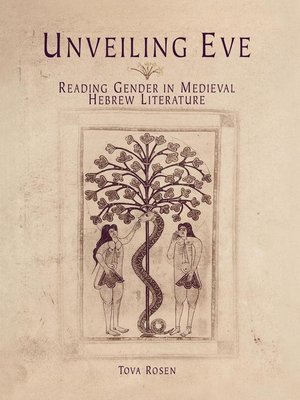Unveiling Eve
ebook ∣ Reading Gender in Medieval Hebrew Literature · Jewish Culture and Contexts
By Tova Rosen

Sign up to save your library
With an OverDrive account, you can save your favorite libraries for at-a-glance information about availability. Find out more about OverDrive accounts.
Find this title in Libby, the library reading app by OverDrive.



Search for a digital library with this title
Title found at these libraries:
| Library Name | Distance |
|---|---|
| Loading... |
Selected by Choice magazine as an Outstanding Academic Title
Unveiling Eve is the first feminist inquiry into the Hebrew poetry and prose forms cultivated in Muslim and Christian Spain, Italy, and Provence in the eleventh through fourteenth centuries. In the Jewish Middle Ages, writing was an exclusively male competence, and textual institutions such as the study of scripture, mysticism, philosophy, and liturgy were men's sanctuaries from which women were banished. These domains of male expertise—alongside belles lettres, on which Rosen's book focuses—served as virtual laboratories for experimenting with concepts of femininity and masculinity, hetero- and homosexuality, feminization and virilization, transvestism and transsexuality. Reviewing texts as varied as love lyric, love stories, marriage debates, rhetorical contests, and liturgical and moralistic pieces, Tova Rosen considers the positions and positioning of female figures and female voices within Jewish male discourse.
The idolization and demonization of women present in these texts is read here against the background of scripture and rabbinic literature as well as the traditions of chivalry and misogyny in the hosting Islamic and Christian cultures. Unveiling Eve unravels the literary evidence of a patriarchal tradition in which women are routinely rendered nonentities, often positioned as abstractions without bodies or reified as bodies without subjectivities. Without rigidly following any one school of feminist thinking, Rosen creatively employs a variety of methodologies to describe and assess the texts' presentation of male sexual politics and delineate how women and concepts of gender were manipulated, fictionalized, fantasized, and poeticized. Inaugurating a new era of critical thinking in Hebrew literature, Unveiling Eve penetrates a field of medieval literary scholarship that has, until now, proven impervious to feminist criticism.







